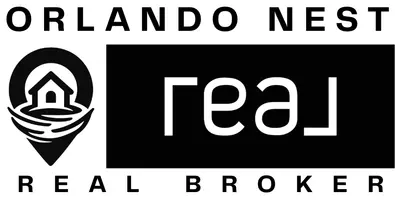What Taxes Will I Pay When I Sell My Orlando Home?

Selling a home can be both an exciting and daunting experience. As an experienced Orlando Realtor, I often guide homeowners through the complexities of selling a home in Orlando, ensuring they understand the financial implications involved. One of the key considerations is taxes. Understanding the taxes you will pay when selling your Orlando home can help you better plan for the future. Let's dive into the details.
TLDR Summary:
- Capital Gains Tax: Potential tax on profit from home sale.
- Exemptions: $250,000 single / $500,000 married filing jointly.
- State Taxes: Florida has no state income tax.
- Property Taxes: Prorated up to the sale date.
- Closing Costs: Include transfer taxes and recording fees.
What Is Capital Gains Tax and How Does It Apply to My Orlando Home Sale?
Capital gains tax is often the most significant tax consideration when selling a home. This tax is levied on the profit made from selling your home, which is calculated by subtracting your home's purchase price and any improvements from the sale price.
Understanding Capital Gains
- Short-term vs. Long-term: If you've owned your home for more than a year, any profit is considered long-term capital gains, generally taxed at a lower rate than short-term gains.
- Tax Rates: Long-term capital gains tax rates range from 0% to 20%, depending on your income bracket.
- Exemption Limits: As a primary residence, you may qualify for a substantial exemption: $250,000 for single filers and $500,000 for married couples filing jointly.
Example Calculation
One of my clients purchased a home in the vibrant Orlando neighborhood of Baldwin Park for $300,000 in 2015. After several improvements, they sold it in 2025 for $550,000. Their total improvements amounted to $50,000. Here's how the capital gains are calculated:
- Purchase Price + Improvements: $300,000 + $50,000 = $350,000
- Sale Price: $550,000
- Capital Gain: $550,000 - $350,000 = $200,000
With an exemption of $250,000, this client owes no capital gains tax.
Are There State Taxes to Consider When Selling My Orlando Home?
Florida is an attractive state for homeowners due to its favorable tax conditions. Unlike many other states, Florida does not impose a state income tax, which can significantly impact the financial outcome of your home sale.
State Tax Benefits
- No State Income Tax: This means you won't pay state taxes on the profit from your home sale.
- Property Tax Considerations: Property taxes in Florida are relatively moderate compared to other states, which is a significant draw for many homeowners.
In 2025, the average property tax rate in Orange County, where Orlando is located, was approximately 0.9%. However, these taxes are prorated up to the sale date, meaning you'll only pay property taxes for the portion of the year that you owned the home.
What Are the Closing Costs Involved in Selling a Home in Orlando?
Closing costs can add up quickly, and it's essential to factor these into your financial planning when selling a home in Orlando. These costs typically range from 2% to 5% of the sale price.
Common Closing Costs
- Title Insurance: Protects against potential title issues.
- Transfer Taxes: Florida's documentary stamp tax is $0.70 per $100 of the sale price.
- Recording Fees: Fees for recording the deed and other documents.
- Real Estate Agent Commissions: Typically 5% to 6% of the sale price, split between the buyer's and seller's agents.
Example Breakdown
For a home sold at $500,000, here's a typical breakdown of closing costs:
- Title Insurance: $1,500
- Transfer Taxes: $3,500
- Recording Fees: $500
- Real Estate Commissions: $25,000 (assuming a 5% total commission)
Total Closing Costs: Approximately $30,500.
As the best real estate agent in Orlando, I always ensure that my clients understand these costs upfront, preventing any surprises during the closing process.
How Can I Minimize the Taxes When Selling My Orlando Home?
While you can't eliminate taxes, there are strategies to minimize them effectively. Here are a few tips drawn from my experience in Central Florida real estate:
Tax Minimization Strategies
- Primary Residence Exemption: Ensure you meet the residency requirement of living in your home for at least two out of the last five years.
- Home Improvements: Keep detailed records of all improvements, as these can be added to your cost basis, reducing your taxable gain.
- Timing the Sale: Consider selling when your income is lower to stay in a lower tax bracket for capital gains.
Client Success Story
One of my clients in the bustling Orlando neighborhood of College Park decided to sell their home after a significant career change. By planning the sale during a year when their income was lower, they minimized their capital gains tax liability. Additionally, they had invested in a kitchen remodel and landscaping, which increased their cost basis and reduced their taxable gain.
What Are the Market Trends in Orlando That Might Affect My Home Sale?
Understanding current market trends can also play a crucial role in the timing and pricing of your home sale. In 2025, Orlando's real estate market has been experiencing steady growth.
Key Market Insights
- Demand: Orlando's housing market remains robust, with steady demand driven by its thriving job market and appeal as a tourist destination.
- Price Appreciation: Home prices have appreciated by an average of 6% annually over the past five years.
- Inventory Levels: While inventory levels have increased slightly, the market remains competitive, favoring sellers.
Neighborhood Spotlight: Lake Nona
Lake Nona has become one of the most sought-after Orlando neighborhoods due to its innovative community planning and proximity to medical and tech hubs. Homes in Lake Nona have seen higher-than-average appreciation rates, making it an attractive area for investment.
FAQs About Selling a Home in Orlando
- 1. How long does it typically take to sell a home in Orlando?
- In 2025, the average time to sell a home in Orlando is approximately 45 days from listing to closing. However, this can vary based on factors such as location, price, and market conditions.
- 2. Are there any specific Orlando regulations I should be aware of?
- Orlando has unique regulations, particularly regarding property disclosures and homeowner association rules. It's crucial to work with an experienced Orlando Realtor who understands these nuances.
- 3. What is the cost of living like in Orlando post-sale?
- Orlando offers a moderate cost of living compared to other major cities. Housing, transportation, and entertainment are reasonably priced, making it an attractive place for relocation.
- 4. Can I sell my home myself in Orlando?
- While it's possible to sell your home without a realtor, working with the best real estate agent in Orlando can ensure you get the best price and navigate the process smoothly.
- 5. What are the benefits of selling now?
- Given the current market trends, selling now could result in a quicker sale at a higher price, especially in high-demand neighborhoods like Winter Park and Dr. Phillips.
Categories
Recent Posts










GET MORE INFORMATION

